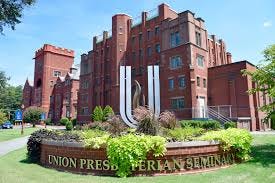I am listening to a panel discussion asking the question: “What are seminaries for?” Good stuff abounds. You can find it here.
I would love to know what you think about this question. How would you answer it?
I have attended three seminaries and worked for two. I attended the Baptist Theological Seminary at Richmond, VA in 1992-93 immediately following college. My impulse was to find a place to receive training for a future professional position in the Church. I was also interested in the academic study of Christian faith. Both were promised and possible. No problem.
In 2001, I returned to seminary at Seabury-Western (now Bexley Seabury) in the Chicago area. Again, I was thinking about a vocation as a minister in God’s Church and a possible academic expression of that call. Again, it was promised and possible…kind of. This time, we were in a post-9/11 world. The statistics about religious life in Europe, the United States, and Canada were already reflecting a diminishing prominence of Christianity. Emergence Christianity was on the rise. I co-pastored a congregation in that movement. Phyllis Tickle was writing her influential book as was Diana Butler Bass. Nadia Bolz-Weber was just a funky church planter. I met them all at conferences at this time. Our Church Leadership/Congregational Development faculty were attempting to prepare us for clergy burn-out, redevelopment work, and getting fired from at least one position in our lifetimes.
In 2011, I returned to seminary at the Graduate Theological Union in Berkeley, CA in partnership with UC Berkeley for a PhD in Liturgical Studies and Ethnomusicology. This was definitely a deep dive into what I had always been doing in the Church. And, although there were still some struggles to accept reality, for the most part, the seminaries in the consortium understood the conundrum they were in. Three percent of the Bay Area was in worship on any given Sunday. That’s all. To imagine a different reality, a former reality, was simply foolish.
I also served as the Director of Admissions at Berkeley School of Theology (then American Baptist Seminary of The West) and a Homiletics Instructor at Church Divinity School of the Pacific both in Berkeley, CA. Both were enlivening positions, challenging and gracious. We were inventing a new thing in both places. Change was slow, but it was also needed. The question, “Why seminary?” was on everyone’s minds.
Here’s a very brief synopsis of what I think…
We need to understand that the seminary is an expression of Church. It may not be a congregation or parish, but it is Church. The economic models, then, need to reflect that reality. And what it is training people for (training will likely always be part of what seminaries do) is fluid at present. Curriculum will need to be fluid as well. Accreditation bodies will need to give seminaries space to do so, to fail and to succeed. Denominational identity, parish life, and what it means to tell the truth of God’s love is fluid. Seminary formation must be as well.
If, as the panelists said, we worship a God of Hope, then we need liberty to do so. To follow a God of Hope is to wander in the wilderness before arriving at the Promised Land. What that looks like at the institutional level is what is at stake.
That is enough about and from me. What do y’all think?





I have never attended a seminary ― indeed, I don’t think that I have even set foot in one, even as a visitor. (I did complete the four-year Education for Ministry program from Swanee, the University of the South. So maybe that that counts as a form of seminary education.)
Based on the emails I receive from Swanee, my impression is that the seminary programs are disconnected from today’s realities.
After Galileo the church gave up trying to explain how the physical world works ― science took that role. But climate chaos, resource depletion and biosphere destruction tell us that we cannot go on like this. Maybe the church, and therefore, the seminaries, should enter that space once more, and so provide badly needed leadership in a post-industrial world. Which means that topics such as ecology and thermodynamics are at the core of their mission.
For what it’s worth (probably about 10 cents and a cup of coffee) my guess is that we will see a revival in both puritanism and monasticism.
You should listen to Dr. Miguel de la Torre's commencement address at VTS (yesterday, on YouTube for all). He will have food for your ruminations.. Also I consider it an interesting answer to the question, what are seminaries for, that he was in fact the speaker (chosen by the senior class). Very interesting to watch the body language in the video.